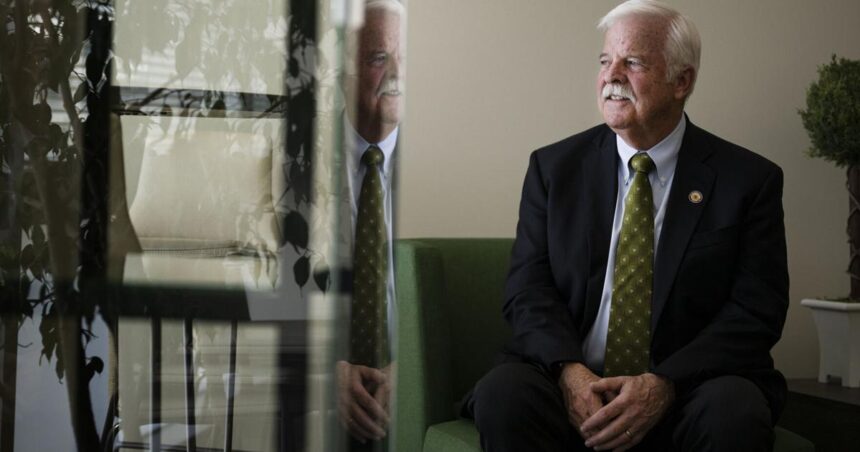A few Denver councilmembers on Monday clashed with the city auditor over a proposal to give the latter powers to subpoena the city’s contractors and compel them to produce records.
On a 9-4 vote, the City Council preliminary approved the proposal expanding the city auditor’s subpoena authority, with supporters saying it would give the office better access to documents when internally investigating the performance of departments.
Some councilmembers questioned the need for the expanded authority, arguing the auditor cited only two instances in which the office needed it in the past five years. In both cases, one councilmember said, the auditor was actually granted access to information, but the office wanted to “possess” the data.
The proposal also came less than a month after the City Council decided to expand the auditor’s authority to investigate wage theft allegations.
The clash on Monday echoed an older feud between the council and the auditor’s office three years ago, when City Auditor Timothy O’Brien and the councilmembers tangled over whether an observer could be present during the auditor’s interviews of council staff members. At the time, O’Brien had planned to audit the council.
This time around, the majority of the council appears willing to expand the auditor’s authority.
Under the new proposal, the auditor would be able to compel a city contractor to produce records if they are relevant to an ongoing financial or performance audit. The auditor will have to first send a written request for the records, and the contractor will have 14 days to comply. If not, the subpoena powers kick in.
Also under a proposal, the entity being audited could ask a neutral third party — a hearing officer — to quash or modify the subpoena request.
O’Brien’s arguments on Monday mirrored the points he raised in 2021, when his office feuded with the previous council.
O’Brien said that, since 2019, his office had conducted roughly 125 audits. In two cases, the office found itself stunted and unable to complete its audit. Those two audits were incomplete, as the entities refused to hand over certain propriety information, such as anonymous donor names and offsite artwork locations.
Flynn countered that refusing to yield “possession” of that information to the auditor is “not the same” as denying the latter access.
Flynn said he was ready to support the proposal but when he dug into the issue a little bit, he came to the conclusion O’Brien’s office doesn’t need the expanded authority.
“They utterly failed to provide a case where they were not able to get the information they wanted,” he told The Denver Gazette.
Flynn said the two cases that the auditor’s office cited involved the Denver Art Museum and Westin Hotel. Both entities were actually willing to give the auditor access to sensitive information — its anonymous donor list for the museum; actual customer satisfaction surveys for Westin Hotel — but what O’Brien wanted was “possession” of the data, which meant the ability to bring it back to his office and run the information, for example, through a third-party app, Flynn said.
The art museum offered “total access,” including the identifies of anonymous donors, but with the condition that the list would be viewed onsite, instead of providing the auditor a digital copy, Flynn said.
The Westin Hotel was also willing to provide the actual customer satisfaction surveys but with redacted names and other personal information, Flynn said.
“His argument for the security (of the data he wants to possess) came down to ‘trust me, bro,'” Flynn said.
During Monday’s meeting, O’Brien said that, in both cases, the two entities told his office how to run the audit and that violated best practices.
“The city charter requires the auditor to conduct audits in accordance with what’s called generally accepted government audit standards,” he said. “Those standards say that the auditor determines the nature of the timing, the extent of the audit procedures, not the auditee. In both these cases, the auditee wanted to tell the auditor how to conduct the audit and that is an absolute violation of those standards in the charter.”
In addition to Flynn, Stacie Gilmore and Amanda Sandoval also balked at the proposal. All three had served on the previous council that O’Brien’s office attempted to audit.
Another councilmember, Darrell Watson, wanted to know how the office currently gets a subpoena if an audit came to an impasse. That would require a lawsuit, according to Matthew Fritz-Mauer, the executive director of Denver Labor, a division of the auditor’s office.
“We would have to file a lawsuit for breach contract against the city contractor and then through that litigation you can get a subpoena from court,” Fritz-Mauer said. “The difference between that kind of subpoena and the subpoena envisioned by Councilmember (Amanda) Sawyer and Councilmember Parady’s bill is that the subpoena in this bill is much more efficient.”
The new proposed process avoids the pain, stress and financial turmoil a lawsuit can cause, supporters argued.
Sawyer, who sponsored the bill, said cases arise in which the auditor needs some information but the subject of the audit insists that is is confidential.
“No longer — five years from now — will we have to be having a conversation about the Westin audit because that decision will be made by a neutral third party,” she said, referring to the hearing officer’s authority outlined in the proposal. “That is, I think, the single most important fact that seems to be lost in the conversation that I’m hearing today.”
Sawyer said both parties will have to “live by” the decision made of the hearing officer, a point Flynn also noted.
Parady echoed some of Sawyer’s comments, calling the bill a “dispute resolution mechanism.” The changes won’t favor one side or the other, she said. Parady predicted there will be cases where the hearing officer sides with the auditor’s office, while at other times that neutral third party will favor with the subject of the audit, which won’t have to produce records.
She argued the bill is not designed to go after locally owned, small businesses but entities with a large city contract worth millions of dollars.
“The kinds of contractors that we are talking about are not small businesses who are accused of wage theft,” she said.











